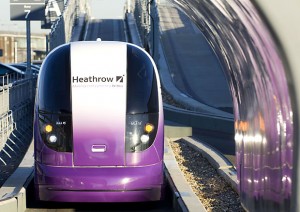The complex legal issues around the use of driverless pods on public roads and pavements have been addressed by a multi-disciplinary team at Bristol-headquartered national law firm Burges Salmon.
The firm has produced a report on the regulatory environment for the revolutionary vehicles as part of its work with the pioneering, government-backed Capri project. 
Among its recommendations is the need for new regulations defining roads and pavements. It says current legal requirements are hampering innovation in the use of driverless pods when technology exists allowing them to operate safely.
The 16-strong Capri consortium includes the University of Bristol, UWE Bristol, South Gloucestershire Council, YTL Developments, Bristol Robotics Lab, Westfield Shopping Centre in west London and Heathrow Airport, where autonomous pods have been used for nine years.
The passenger-only pods, designed by University of Bristol spin-out firm Ultra, became the world’s first commercial personal Rapid Transit system when they entered full operational service at Heathrow Airport in 2011.
Since then the 3.8km of guideway linking Terminal 5 with its business car park has made journeys equivalent to 5m km, eradicating the need for 700,00 bus journeys.
Westfield now plans to introduce its own pods – but their use in public spaces open up myriad legal questions.
The Burges Salmon report examines the regulatory framework around the use of the pods as part of its work with Capri, the collaborative research and development project awarded by the government’s Centre for Connected & Autonomous Vehicles (CCAV) and commissioned by Innovate UK. 
Capri was launched in 2017 to build passenger, regulatory and market trust in autonomous pods as a practical, safe and affordable way to travel. The consortium is led by AECOM, the international technical and support services consultancy with an office in Bristol.
The pilot project includes the development of autonomous vehicle technology in addition to reducing the barriers to market for a commercial service using pods.
The Burges Salmon team – led by Chris Jackson, partner and head of the firm’s infrastructure sector group, and Lucy Pegler, director in the technology and communications team – has led the project’s legal research into the current regulatory environment for automated pods operating in ‘dual-mode’ – pedestrian routes such as pavements and roads.
The research also examines the future regulatory landscape and provides recommendations for UK government and industry to review the underlying regulation defining road and pavements currently underpinning how new mobility technology can be used.
Lucy, pictured, said: “It’s been fantastic to work as legal partner to the Capri consortium over the past few years and to contribute to the project by producing this report on the regulatory aspects of bringing a commercial autonomous pod solution to the market.
“Our report explores how attempting to shoehorn new mobility technologies into the existing regulatory regime would stifle innovation in the UK and makes a number of recommendations.
“Central to our recommendations is new regulation defining roads and pavements that will future proof the UK’s commercial development capabilities in the Connected and Automated Mobility (CAM) sector by ensuring that new definitions reflect current and future mobility technology.”
The report has been published as part of Capri’s ‘virtual museum’, launched on Wednesday to showcase the project’s achievements and provide an opportunity for visitors to learn more about the business case for autonomous pods, the safety aspects, as well as the user experience and security of the vehicles.





























